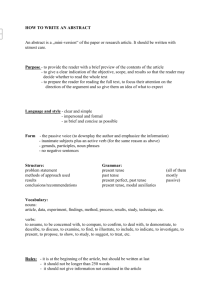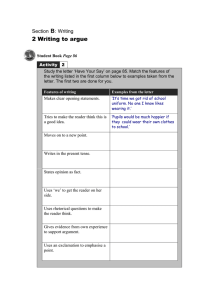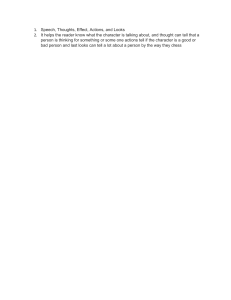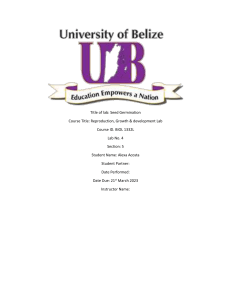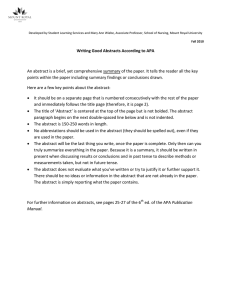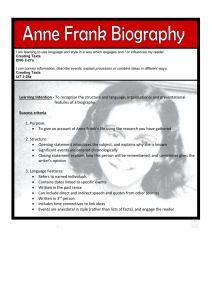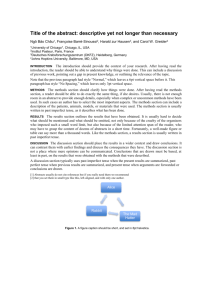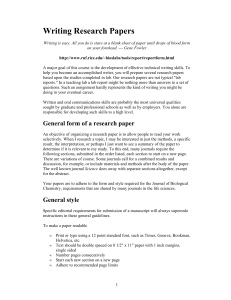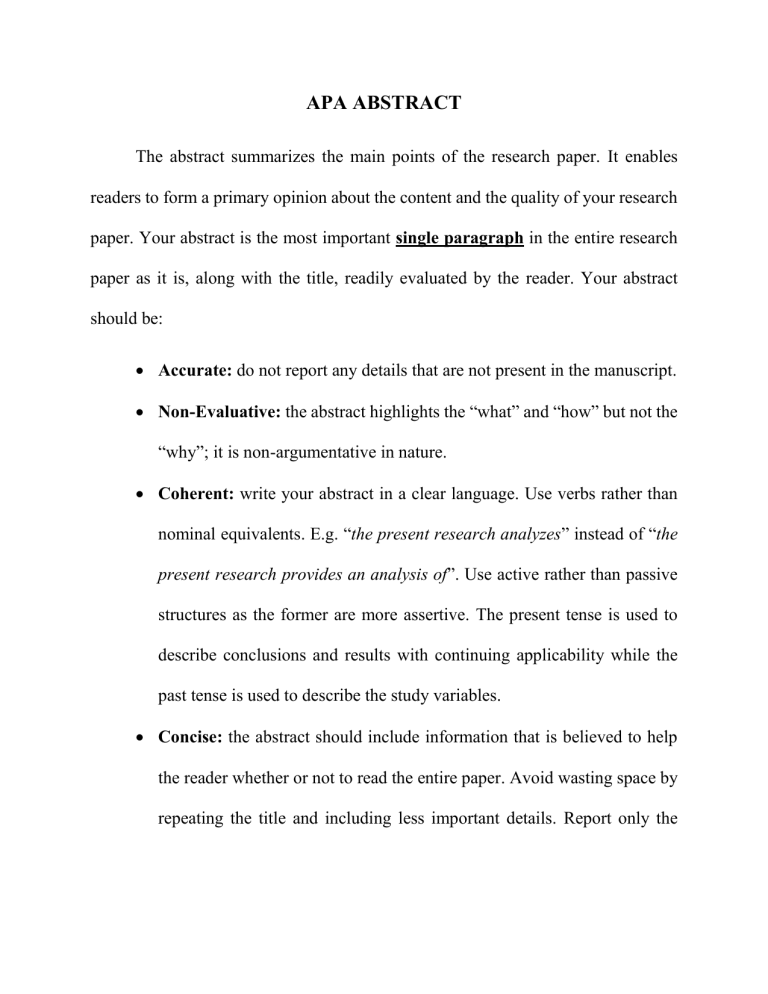
APA ABSTRACT The abstract summarizes the main points of the research paper. It enables readers to form a primary opinion about the content and the quality of your research paper. Your abstract is the most important single paragraph in the entire research paper as it is, along with the title, readily evaluated by the reader. Your abstract should be: Accurate: do not report any details that are not present in the manuscript. Non-Evaluative: the abstract highlights the “what” and “how” but not the “why”; it is non-argumentative in nature. Coherent: write your abstract in a clear language. Use verbs rather than nominal equivalents. E.g. “the present research analyzes” instead of “the present research provides an analysis of”. Use active rather than passive structures as the former are more assertive. The present tense is used to describe conclusions and results with continuing applicability while the past tense is used to describe the study variables. Concise: the abstract should include information that is believed to help the reader whether or not to read the entire paper. Avoid wasting space by repeating the title and including less important details. Report only the main findings. Most journals limit the abstract within the range of 150-250 words. It is a matter of editorial judgement. The Elements of an Abstract: Your abstract should be organized as follows: 1. The research problem: preferably in one sentence 2. The objective(s) of the study 3. Research design/methods a. Participants: number, age, gender, etc. b. Research tool(s) c. Data collection technique(s) 4. The main findings 5. Conclusions and implications Reference American Psychological Association. (2010). Publication Washington, DC: American Psychological Association. manual.
